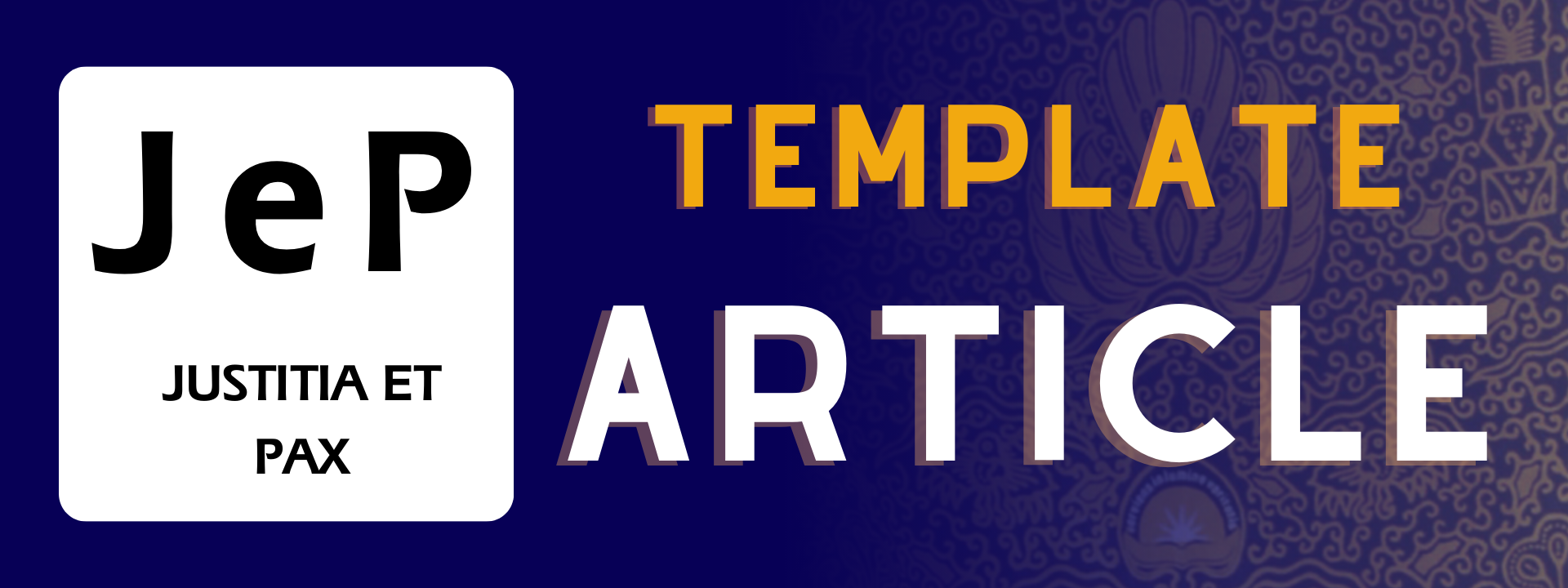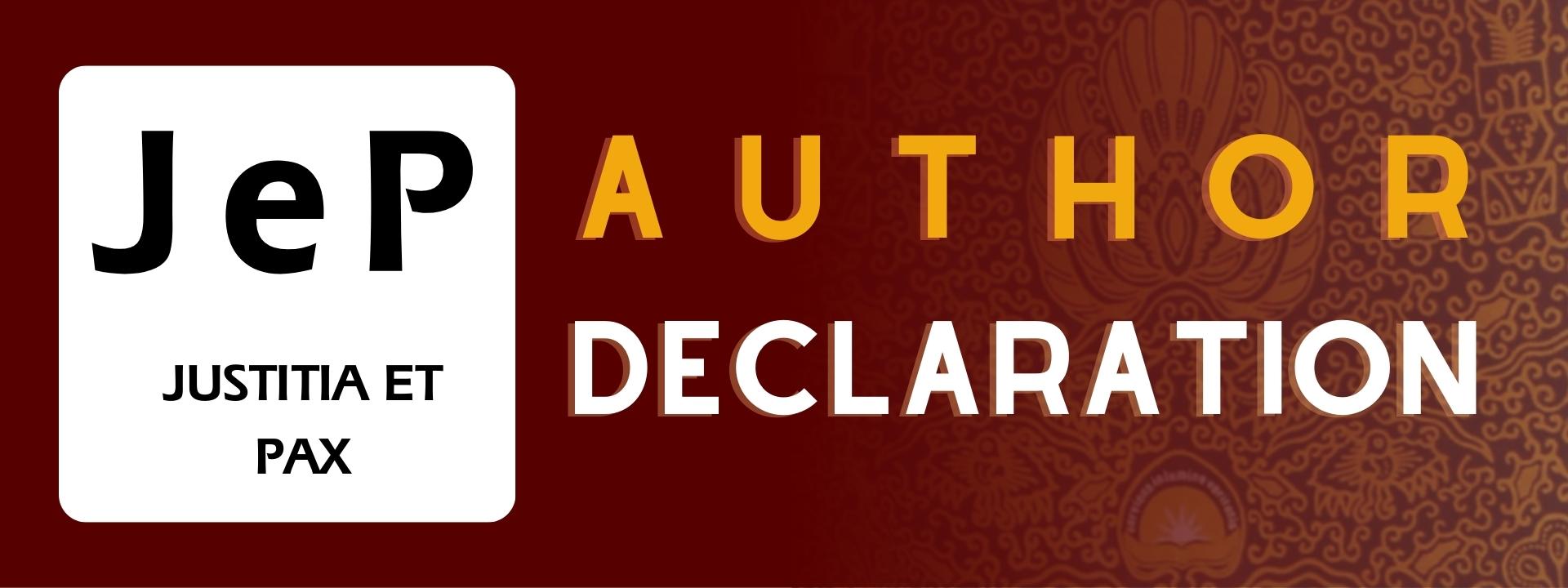THE EXISTENCE OF LIVING LAW IN CRIMINAL LAW REFORM: EXPANSION OF THE PRINCIPLE OF LEGALITY
DOI:
https://doi.org/10.24002/jep.v40i2.7762Keywords:
Criminal Law, Legality Principle, Living LawAbstract
The implementation of WvSvNI as a rule of criminal law in Indonesia after the proclamation of independence of the Republic of Indonesia automatically enforces the principle of formal legality embedded in it. The principle of formal legality is rigid because it places criminal law as the only basis for punishing someone's actions for an act regulated therein. The principle of formal legality also negates the existence of living law in Indonesian society, which is often known as customary law. Criminal law reform through the ratification of the National Criminal Code seeks to integrate living law as a source of criminal law. This article will discuss issues related to the existence of living law (Adat law) in the renewal of national criminal law. The method used in this legal research is a normative legal research method with a statutory approach. The results of this study indicate that the inclusion of living legal provisions (Adat law) into criminal law is an effective effort to achieve comprehensive justice for the Indonesian people, the actual form of which is to protect society (especially victims) from actions that are detrimental to themselves. Society is protected from not only mala prohibita acts but also extraordinary criminal acts, one of which is customary crime.
References
Books
Arief, Barda Nawawi, 2011, Beberapa Aspek Kebijakan Penegakan dan Pengembangan Hukum Pidana, Citra Aditya Bakti, Bandung.
Joaneddi Efendi & Johnny Ibrahim, 2016, Metode Penelitian Hukum: Normatif dan Empiris, Kencana, Jakarta.
Peter Mahmud Marzuki, 2017, Penelitian Hukum, Kencana, Jakarta.
Muladi, 1990, Proyeksi Hukum Pidana Materiil Indonesia di Masa Datang: Pidato Pengukuhan Jabatan Guru Besar Ilmu Hukum Pidana, Universitas Diponegoro, Semarang.
Setiadi, 2008, Intisari Hukum Adat Indonesia dalam Kajian Kepustakaan, Alfabeta, Bandung.
Yuherawan, Deni Setyo Bagus, 2014, Dekonstruksi Asas Legalitas Hukum Pidana: Sejarah Asas Legalitas dan Gagasan Pembaharuan Filosofis Hukum Pidana, Setara Press, Jakarta.
Journals
Abdulah, Rahmat, “Urgensi Hukum Adat dalam Pembaharuan Hukum Pidana”, Fiat Justisia Jurnal Ilmu Hukum, Vol. 9, No. 2, 2015.
Eka, R Mayasari, “Tantangan Hukum Adat dalam Era Globalisasi Sebagai Living Law dalam Sistem Hukum Nasional”, Journal Equitable, Vol. 2, No. 1, 2018.
Hadi, Syofyan, “Hukum Positif dan The Living Law (Eksistensi dan Keberlakuannya dalam Masyarakat)”, DiH: Jurnal Ilmu Hukum, Vol. 5, No. 2, 2018.
Harahap, Asliani, “Pembaharuan Hukum Pidana Berbasis Hukum Adat”, Jurnal Edutech, Vol. 4, No. 2, 2018.
Hiariej, Eddy O. S, “Pertentangan Asas Legalitas Formil dan Materiil dalam Rancangan Undang-Undang KUHP”, Jurnal Penelitian Hukum, Vol. 2, No. 1, 2015.
Kesuma, Derry Angling and Yuli Asmara Triputra, “Dekontruksi Terhadap Asas Legalitas, Perimbangan Perlindungan Terhadap Kepentingan Pelaku dan Korban Tindak Pidana”, Viva Themis, Vol. 1, No. 1, 2018.
Kristiyadi, “Pergeseran Asas Legalitas dalam Pembaruan Hukum Pidana Indonesia”, Jurnal Dunia Ilmu Hukum, Vol. 1, No. 1, 2023.
Nurdin, Fransiskus Saverius, “Rekonstruksi Asas Legalitas dalam Hukum Pidana Berdasarkan Prinsip Keadilan”, Refleksi Hukum, Vol. 1, No. 1, 2016.
Putri, Nella Sumika, “Memikirkan Kembali Unsur ‘Hukum Yang Hidup Dalam Masyarakat’ dalam Pasal 2 RUU-KUHP Ditinjau Asas Legalitas”, Indonesia Criminal Law Review, Vol. 1, No. 1, 2021.
Rif’an, Ahmad and Ilham Yuli Isdiyanto, “Dediametralisasi Living Law dan Kepastian Hukum dalam Pasal 2 RKUHP”, Ahmad Dahlan Legal Perspective, Vol. 1, No. 1, 2021.
Setyawan, Vincentius Patria, “Asas Legalitas dalam Perspektif Filsafat Hukum”, Justitia Et Pax, Vol. 37, No. 1, 2021.
________________________, “Pemaknaan Asas Legalitas Materiil dalam Pembaharuan Hukum Pidana Indonesia, Gudang Jurnal Multidisiplin Indonesia, Vol. 1, No. 1, 2023.
Suartha, I Dewa Made, “Pergeseran Asas Legalitas Formal ke Formal dan Material dalam Pembaharuan Hukum Pidana Nasional”, Yustisia Jurnal Hukum, Vol. 9, No. 1, 2015.
Sutingkir, Danel Aditia, “Asas Legalitas dalam Hukum Pidana Nasional dan Hukum Pidana Internasional”, Soumatera Law Review, Vol. 1, No. 1, 2018.
Tongat, et. al., “Hukum Yang Hidup dalam Masyarakat dalam Pembaharuan Hukum Pidana Nasional,” Jurnal Konstitusi, Vol. 17, No. 1, 2020.
Widayati, Lidya Suryani, “Pidana Tutupan dalam RUU KUHP: dari Perspektif Tujuan Pemidanaan, Dapatkah Tercapai?”, Jurnal Negara Hukum, Vol. 10, No. 2, 2019.
Law and Regulations
The Law of Republic Indonesia Number 1 of 2023 concerning the Indonesian Criminal Code (Republic of Indonesia State Gazette of 2023 No. 1).
Downloads
Published
Issue
Section
License

This work is licensed under a Creative Commons Attribution-NonCommercial-ShareAlike 4.0 International License.
Authors who publish with this journal agree to the following terms:
- Authors retain copyright and grant the journal right of first publication with the work simultaneously licensed under a Creative Commons Attribution License that allows others to share the work with an acknowledgement of the work's authorship and initial publication in this journal.
- Authors are able to enter into separate, additional contractual arrangements for the non-exclusive distribution of the journal's published version of the work (e.g., post it to an institutional repository or publish it in a book), with an acknowledgement of its initial publication in this journal.
- Authors are permitted and encouraged to post their work online (e.g., in institutional repositories or on their website) prior to and during the submission process, as it can lead to productive exchanges, as well as earlier and greater citation of published work (See The Effect of Open Access).

This work is licensed under a Creative Commons Attribution-NonCommercial-ShareAlike 4.0 International License.




















